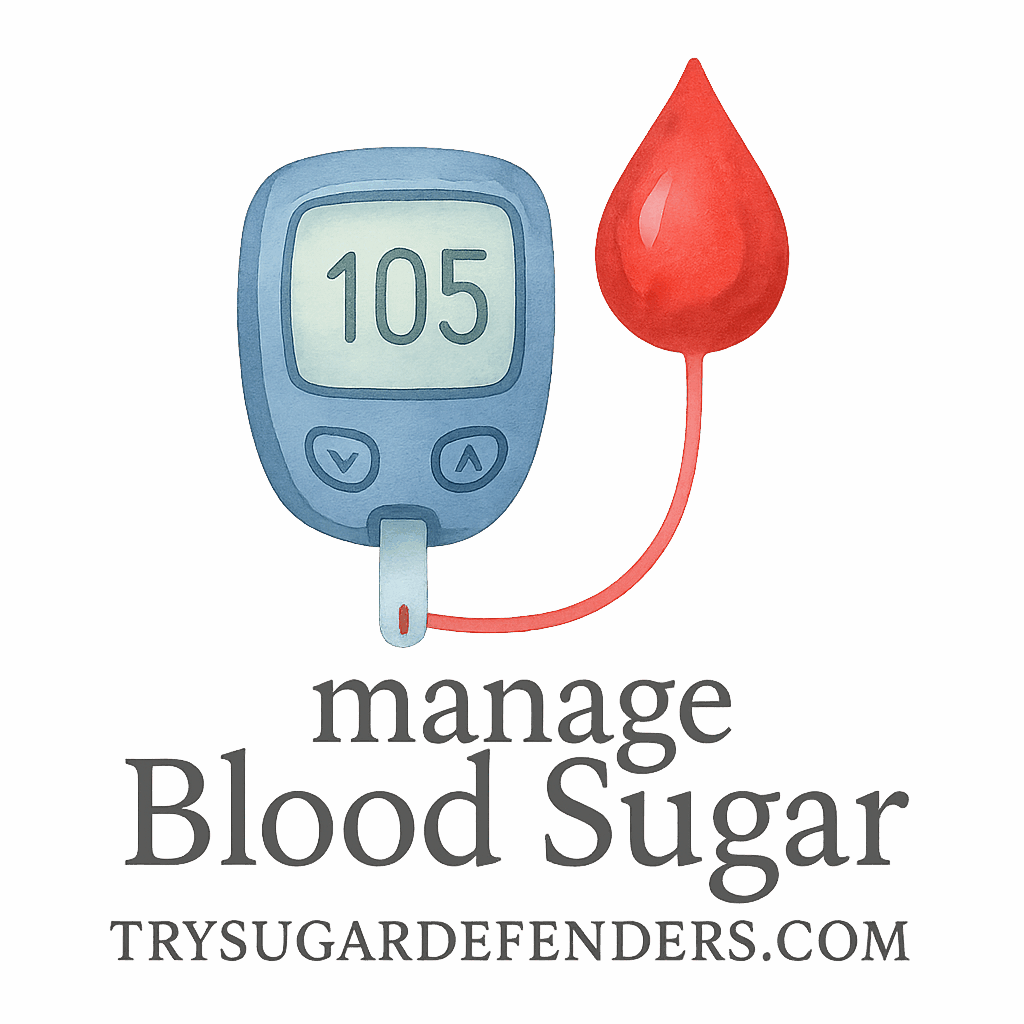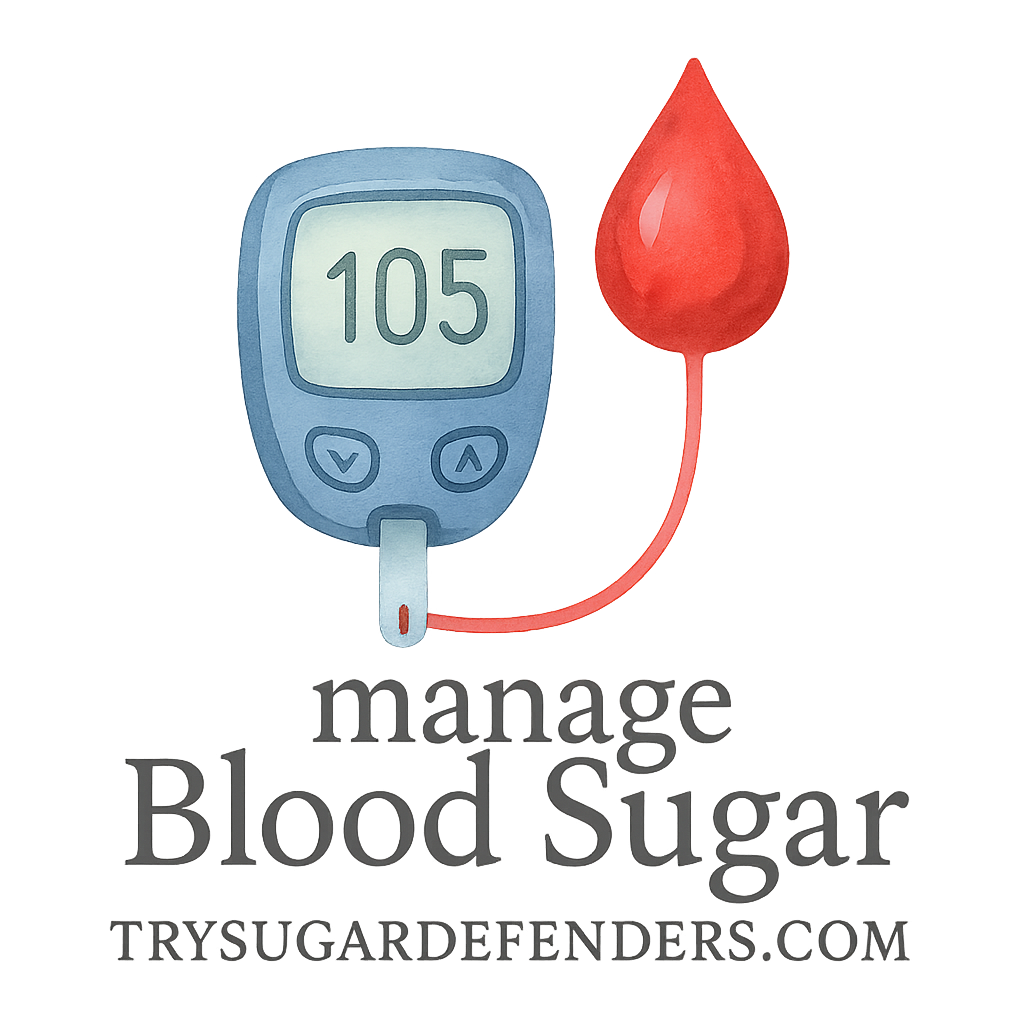Introduction
Ever notice how your blood sugar goes a bit wild when you’re stressed out? You’re not imagining things. Stress and blood sugar are like that toxic couple that keeps getting back together—bad news. But the good news? There are simple, enjoyable stress-reducing activities that can help stabilize your glucose levels.
If you’re ready to take back control over your mood and your metabolism, this guide is for you. Let’s dive into ten science-backed ways to chill out and keep your blood sugar in check.
Want an all-in-one approach to blood sugar control? Try Sugar Defenders for practical guides, lifestyle tips, and supportive resources.
Why Stress Affects Blood Sugar Levels
The Cortisol Connection
Stress triggers your adrenal glands to release cortisol—a hormone designed to help in emergencies. But chronic stress? It floods your system with this hormone constantly, telling your liver to release glucose for “energy,” even when you don’t need it. That extra sugar? It stays in your blood, spiking levels unnecessarily.
Stress, Insulin, and Glucose
High cortisol levels can also make your cells insulin-resistant. This means your body can’t use insulin properly, causing sugar to build up in the bloodstream—hello, high blood sugar! Over time, this cycle wears down your health.
1. Deep Breathing Exercises
How Deep Breathing Helps Regulate Glucose
You don’t need to be a monk to benefit from breathwork. Controlled breathing activates the parasympathetic nervous system, a.k.a. the “rest and digest” state. When this system is active, cortisol drops and insulin works better.
Simple Breathing Techniques You Can Try
Try the 4-7-8 technique:
- Inhale for 4 seconds
- Hold for 7
- Exhale for 8
Do this 3–4 times a day to feel calmer—and support steadier glucose.
🧠 Related tip: Learn more mental techniques at Behavioral & Mental Strategies
2. Daily Walking or Light Cardio
Movement Reduces Stress Hormones
Moving your body clears out stress hormones. Light cardio like walking, dancing, or cycling improves insulin sensitivity and calms your nervous system.
Ideal Walking Routines
- 20-minute post-meal walks
- Morning sunshine walks (help reset your circadian rhythm!)
- Listening to a chill playlist or nature sounds while walking
💪 Want more fitness tips? Visit Exercise & Lifestyle
3. Guided Meditation & Mindfulness
Science-Backed Benefits on Blood Sugar
Mindfulness practices like meditation help shrink the amygdala (your brain’s fear center), lowering your perceived stress. Studies show people who meditate regularly have lower fasting blood glucose.
Best Mindfulness Apps and Practices
Try:
- Headspace
- Calm
- Insight Timer
Start with just 5 minutes a day and build up.
🧘 Browse more Mental Strategies

4. Journaling and Emotional Release
How Journaling Calms the Mind and Body
Brain dumping on paper reduces mental overload. This lowers sympathetic nervous system activity and brings blood sugar down.
Prompts to Get You Started
- What’s stressing me today?
- What’s something I can control right now?
- What’s one thing I’m grateful for?
✍️ Find more resources under CBT Strategies
5. Yoga and Gentle Stretching
Physical and Mental Relaxation Benefits
Yoga isn’t just about flexibility—it’s a nervous system reset. It lowers cortisol, improves insulin sensitivity, and boosts circulation.
Beginner-Friendly Yoga Moves
- Child’s Pose
- Legs-Up-The-Wall
- Cat-Cow stretch
🧘♀️ See more on Fitness & Routine
6. Listening to Calming Music
How Music Alters Brainwaves and Sugar
Music therapy reduces blood pressure, anxiety, and—you guessed it—cortisol. Soothing tunes can literally change your biochemistry.
Recommended Relaxation Playlists
- Lo-fi Beats
- Nature Sounds
- Classical Chill
- Spa Ambient
🎵 Explore more Healthy Habits
7. Spending Time in Nature
Nature’s Influence on Mental and Metabolic Health
Green spaces = less stress. Studies show walking in nature drops cortisol and blood sugar faster than walking in urban areas.
Ideas for Nature-Based Activities
- Forest bathing (literally just walking through trees)
- Gardening
- Beach walks or barefoot grounding
🌳 Bonus: Combines sunlight, movement, and breathwork all in one!
8. Aromatherapy & Essential Oils
Calming Scents That May Lower Cortisol
Scents like lavender, bergamot, and chamomile help reduce stress markers in the brain. They work through the olfactory system to signal relaxation.
How to Use Aromatherapy Effectively
- Diffuse in your room
- Add a few drops to your bath
- Apply to temples with carrier oil
🕯️ Check Methods for Mental Calm
9. Laughter and Social Connection
Endorphins vs. Cortisol: The Hormone Battle
Laughter floods your brain with happy chemicals. And spending time with loved ones boosts oxytocin—a natural stress reliever.
Easy Ways to Laugh More Often
- Watch a stand-up show
- Listen to a funny podcast
- Call a friend and share stories
😂 Strengthen your routine with social joy. Check out Goal-Setting for Health
10. Structured Routine & Sleep Hygiene
Consistency for Mental and Metabolic Stability
A predictable daily routine reduces decision fatigue and anxiety. And good sleep? That’s prime time for glucose regulation.
Creating a Blood Sugar Friendly Routine
- Set sleep and wake times
- Limit screen time before bed
- Eat meals on a schedule
- Build in time for relaxation daily
🛌 Learn more on Lifestyle Planning
Conclusion
Reducing stress isn’t just about peace of mind—it’s about protecting your metabolic health. The body and mind are deeply connected, and by incorporating these ten simple activities into your day, you can naturally stabilize your blood sugar levels.
Remember, it’s not about perfection—it’s about progress. Even adding just one of these tools to your daily routine can make a noticeable difference.
Need a complete blood sugar game plan? Explore Sugar Defenders Now
FAQs
1. Can stress really cause high blood sugar even if I don’t eat sugar?
Yes! Stress hormones trigger the liver to release glucose, even in the absence of food.
2. What’s the fastest way to reduce stress and blood sugar naturally?
Deep breathing and walking are among the quickest, most accessible ways.
3. How does sleep affect blood sugar levels?
Poor sleep increases cortisol and insulin resistance, leading to elevated blood sugar.
4. Is yoga or cardio better for blood sugar control?
Both help! Yoga reduces stress hormones, while cardio improves insulin function.
5. Are there any apps that help track both stress and blood sugar?
Yes! Many glucose monitors now sync with wellness apps to track mood and stress.
6. Can essential oils replace medication for blood sugar?
No. But they can complement a healthy lifestyle and help manage stress naturally.
7. How often should I practice these activities for results?
Aim for daily practice. Even 10–20 minutes can make a big difference over time.


